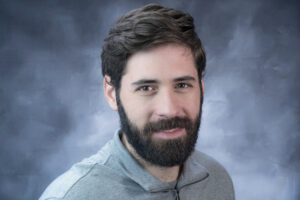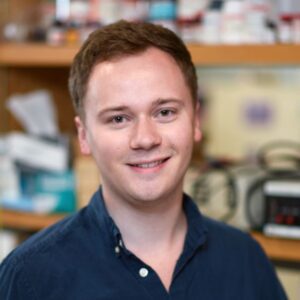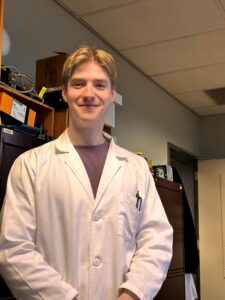Who We Are
Helen Scharfman, PhD
About
Helen graduated from Vassar College in Biopsychology and then received a PhD in Pharmacology from the Uniformed Services University of the Health Sciences. She conducted postdoctoral training at the Uiversity of Seattle and Stony Brook University before starting her lab at the Helen Hayes Hospital, an affiliate of Columbia University where she was in the Departments of Pharmacology and Neurology. After moving to the Center for Dementia Research at the Nathan Kline Institute for Psychiatric Research (NKI) in 2007 she was appointed to New York University School of Medicine where she is currently Professor in the Departments of Child Psychiatry, Neuroscience and Physiology, and Psychiatry.
Helen has been fascinated by how the brain normally carries out its impressive array of functions and has focused on the properties of neurons that allow them to be excitable, namely their electrophysiological properties, and also plastic, allowing the brain to learn and remember. This has led to a passion for using that knowledge to correct the brain in pathological conditions. Some of the most complex and clinically difficult problems have been a focus of efforts, such as how epilepsy can be treated, and cures for Alzheimer's disease.

Publications
- PubMed: pubmed.ncbi.nlm.nih.gov/?term=scharfman
- ResearchGate: researchgate.net/profile/Helen-Scharfman
- Loop: loop.frontiersin.org/people/3630
- Orcid: orcid.org/0000-0003-4006-3383
- NeuroTree: neurotree.org/beta/peopleinfo.php?pid=4810
Contact
- E-mail: helen.scharfman@nyulangone.org
- LinkedIn: hscharfman
Christos Lisgaras, PhD
About
Dr. Christos Lisgaras received his Integrated Master's Degree in Applied Biology and Technology from the University of Ioannina in Greece and his Ph.D. in Neurophysiology and Neuropharmacology from the same institution. His PhD work focused on the role of the cholinergic system in the hyperexcitability of developmental epilepsy, with a particular focus on hippocampal and cortical oscillations. He was subsequently trained at the Albert Einstein College of Medicine to investigate post-traumatic electrophysiological (EEG) abnormalities and antiepileptogenic treatments as a part of a preclinical consortium, the Epilepsy Bioinformatics Study for Antiepileptogenic Therapy (EpiBioS4Rx).
Christos' current work is focused on developing new approaches to treat epilepsy and associated memory impairments without side effects. To that end, he developed a novel closed-loop approach to stop seizures, pathological oscillations, and interictal discharges in real time using optogenetics. Using this selective approach, he was able to determine a novel therapeutic role for hippocampal area CA2 in epilepsy. Also, his experience in the Scharfman laboratory made him highly interested in Alzheimer's disease and especially the role of high-frequency oscillations as a biomarker. To that end, he is using large-scale in vivo electrophysiology in different animal models of AD to search for early EEG biomarkers.
Christos has served on committees at the International League against Epilepsy (ILAE), and he is a founding member of the Young Epilepsy Section. He has been awarded the Herbert H. Jasper Junior Investigator Travel Award and has been supported by the ILAE, AES, the Alexander S. Onassis Public Benefit Foundation, the Greek National Scholarships Foundation, the Bodossaki Foundation, and the World Hellenic Biomedical Association. His work is also supported by NYU's Comprehensive Epilepsy Center FACES Pilot Research Grant to advance brain stimulation strategies in temporal lobe epilepsy.

Selected Publications
- High-Frequency Oscillations (250-500Hz) in Animal Models of Alzheimer's Disease and Two Animal Models of Epilepsy. Epilepsia, 2023
- Robust Chronic Convulsive Seizures, High-Frequency Oscillations, and Human Seizure Onset Patterns in an Intrahippocampal Kainic Acid Model in Mice. Neurobiology of Disease, 2022 — Featured on the cover
- Region-specific Effects of Early-life Status Epilepticus on the Adult Hippocampal CA3 — Medial Entorhinal Cortex Circuitry In vitro: Focus on Interictal Spikes and Concurrent High-Frequency Oscillations Neuroscience, 2021
- Loop: https://loop.frontiersin.org/people/589698
- Orcid: orcid.org/0000-0003-3712-5993
- NeuroTree: https://neurotree.org/beta/peopleinfo.php?pid=753066
Contact
- E-mail: Christos.Lisgaras@nyulangone.org
- LinkedIn: clisgaras
- Twitter/X: Chris_Lisgaras
Chiara Criscuolo, PhD
About
Dr. Chiara Criscuolo earned a BS and MS in Medical Biotechnology at the University of Rome Tor Vergara and completed her Ph.D. in Neurobiology at the Neuroscience Institute of the National Research Council in Pisa, Italy, with a graduate scholarship awarded by the University of L'Aquila. In Pisa, she also did a first postdoc collaborating with Scola Normale Superiore of Pisa and the European Brain Research Institute—Rita Levi-Montalcini Foundation (EBRI) of Rome. During her time in Pisa, Dr. Criscuolo had the opportunity to work on a variety of projects. Her Ph.D. work focused on the role of neurotrophic factors of the NGF family in the control of synaptic function in the entorhinal cortex and their effects on synaptic toxicity caused by an Aβ-enriched environment. Later, she investigated the potential of intranasal treatment as a new tool to deliver neurotrophic factors directly into the brain in murine models of Alzheimer's disease (AD). In addition, with the aim of describing the Aβ targets, she investigated the role of microglial and neuronal RAGE (receptors for advanced glycation end products) in Aβ-mediated synaptic dysfunction. In Pisa, she also studied the visual system—at first focusing on the development of the visual circuitry, then monitoring the visual function of murine AD models at earlier stages of neurodegeneration.
Before joining the Scharfman Lab in 2019, Dr. Criscuolo worked at the Columbia University Irving Medical Center Department of Neurology, where she studied alterations in the cortico-striatal circuitry in a murine model of autism spectrum disorder. At Columbia, she also explored the effects of sleep deprivation on the development and progression of neurodegenerative diseases such as Parkinson's disease.
Chiara is currently investigating how sex differences affect the brain in animal models of AD and epilepsy and the role played by neurotrophic factors and their receptors in the early stages of AD. Chiara is also playing important roles at NYU, where she has been appointed to the Neuroscience Institute Committee on Diversity and Inclusion, and at NKI, where she is serving on the Postdoctoral Committee.

Selected Publications
- Criscuolo C, Chartampila E, Ginsberg SD, Scharfman HE (2024) Dentate Gyrus Granule Cells Show Stability of BDNF Protein Expression in Mossy Fiber Axons with Age, and Resistance to Alzheimer's Disease Neuropathology in a Mouse Model. eNeuro. 11(3):ENEURO.0192-23.2023. doi: 10.1523/ENEURO.0192-23.2023. PMID: 38164567
- Alcantara-Gonzalez D, Kennedy M, Criscuolo C, Botterill J, Scharfman HE (2025) Increased excitability of dentate gyrus mossy cells occurs early in life in the Tg2576 model of Alzheimer's disease. Alzheimers Res Ther. 17(1):105. doi: 10.1186/s13195-025-01747-1. PMID: 40375112
- Loop: https://loop.frontiersin.org/people/292975
- ResearchGate: Chiara-Criscuolo-3
- Orcid: orcid.org/0000-0002-1080-9941
Contact
- E-mail: Chiara.Criscuolo@nki.rfmh.org
- LinkedIn: chiara-criscuolo-msc-phd
- X/Twitter: ChiaraCriscuol8

Selected Publications
- Stephens GS, Park J, Eagle A, You J, Silva-Pérez M, Fu CH, Choi S, Romain CPS, Sugimoto C, Buffington SA, Zheng Y, Costa-Mattioli M, Liu Y, Robison AJ, Chin J (2024) Persistent ∆FosB expression limits recurrent seizure activity and provides neuroprotection in the dentate gyrus of APP mice. Prog Neurobiol. 237:102612. doi: 10.1016/j.pneurobio.2024.102612. PMID: 38642602
- Stephens GS, Fu CH, St Romain CP, Zheng Y, Botterill JJ, Scharfman HE, Liu Y, Chin J. Genes Bound by ΔFosB in Different Conditions With Recurrent Seizures Regulate Similar Neuronal Functions. Front Neurosci. 2020 May 28;14:472. doi: 10.3389/fnins.2020.00472. PMID: 32536852
Contact
- ResearchGate: https://www.researchgate.net/profile/Gabriel-Stephens
- Twitter/X: https://twitter.com/gsneuro
- LinkedIn: www.linkedin.com/in/gabriel-stephens-1b339293
Gabe Stephens, PhD
About
Dr. Gabriel Stephens graduated from Williams College in 2015, earning a B.A. with Honors in Biology with a Concentration in Neuroscience. At Williams, Gabe performed and published independent research into dopaminergic mechanisms that control sequenced motor outputs, including grooming behavior in Drosophila fruit flies and song performance in Zebra finches.
From 2015 to 2023, Gabe completed his Ph.D. in Neuroscience (and a brief postdoctoral position) in the lab of Jeannie Chin at Baylor College of Medicine. In the Chin lab, Gabe investigated seizure-induced mechanisms that can maintain neuroprotection (but also impair memory) over the course of chronic recurrent seizure activity in models of Alzheimer’s disease (AD) and temporal lobe epilepsy (TLE). He found that ∆FosB, a transcription factor that accumulates over the course of recurrent epileptic or hyperexcitable conditions, is necessary to restrict seizure activity and maintain neuroprotection in the dentate gyrus of the J20 mouse model of AD. He has also identified numerous ∆FosB target gene pathways that together may limit hippocampal excitability and prevent cell death across conditions with chronic recurrent seizure activity.
Gabe joined the Scharfman lab in August 2023 and is investigating the roles of the p75 neurotrophin receptor in driving the early-stage hyperexcitability and late-stage neurodegeneration of cholinergic neurons of the medial septum in AD. He is also investigating how hilar mossy cells that survive into the chronic phase of recurrent seizures (after initial chemo-convulsant-induced status epilepticus) may adapt and help to restrict further seizure activity. His work is supported in part by the 2023-2024 NYU Langone Alzheimer’s Disease Research Center T32-Funded Postdoctoral Training Program for Postdoctoral Research Training in Alzheimer’s Disease and Related Neurodegenerative Disorders (T32AG052909).
Yingxin Li, PhD
About
Yingxin Li received her PhD in Translational Health Sciences from the University of Bristol Medical School where she studied electrophysiology and optogenetics in the laboratory of Dr. Denize Atan and Prof. Zafar Bashir. She then worked at ACROBiosystems in Beijing, working with organoids and preformed fibrils to mimic the aggregation of alpha-synuclein or tau proteins. She came to NKI in February 2025. She is studying the mechanisms underlying changes in dentate gyrus neurons in models of Alzheimer’s disease and epilepsy. Yingxin enjoys spending her spare time with her two little dogs, Money (Maltese) and Glory (Yorkie).
![Yingxin at graduation {"ARInfo":{"IsUseAR":false},"Version":"1.0.0","MakeupInfo":{"IsUseMakeup":true},"FaceliftInfo":{"IsChangeEyeLift":true,"IsChangeFacelift":false,"IsChangePostureLift":false,"IsChangeNose":true,"IsChangeFaceChin":false,"IsChangeMouth":false,"IsChangeThinFace":true},"BeautyInfo":{"IsAIBeauty":false,"OldBeautyCount":1,"IsSharpen":false,"OldBeautyValue":["0.25"],"SwitchMedicatedAcne":false,"IsBrightEyes":true,"IsOldBeauty":true,"IsReduceBlackEyes":true},"HandlerInfo":{"AppName":2},"FilterInfo":{"IsUseFilter":true,"FilterCount":1,"FilterValueList":["0.595061719417572"]}}](https://scharfmanlab.com/wp-content/uploads/2025/05/Yingxin-at-graduation-225x300.jpeg)
Publications
- http://dx.doi.org/10.1101/2021.12.04.467951
- Researchgate: https://www.researchgate.net/profile/Yingxin-Li
Contact
- E-mail: yingxin.li@nki.rfmh.org
- yingxin.li@nyulangone.org

Garrett Smith, BS
About
Garrett Smith received his BS in Biology from SUNY Oneonta where he conducted research about the function of various M1 and M2 genes in bacterial clearance using RNAi GAL4-UAS Drosophila sp. lines. He came to NKI in the fall of 2024 and has learned several new techniques. Currently he is dividing his time between patch clamp electrophysiology and EEG in mice. Garrett enjoys reading and spending time outdoors with his dog, Archie, and cat, Chloe.
Contact
E-mail: garrett.smith@nki.rfmh.org
Linkedin: https://www.linkedin.com/in/garrett-smith-728370165/
Monarch Rathod, BS MS
About
Monarch Rathod received his BS from Temple University in Biology and a MS degree from Rutgers University. At Rutgers he conducted research in Alzheimer’s disease using cell culture. Monarch came to NKI in the fall of 2025 and has learned immunocytochemistry. His first project compared activity-dependent markers in the hippocampus after traumatic brain injury to try to understand why it is a risk factor for Alzheimer’s disease and epilepsy. In his spare time he enjoys soccer, exploring scenic hikes, and playing video games.
Contact
- E-mail: monarch.rathod@nki.rfmh.org
- Linkedin: https://www.linkedin.com/in/monarchsinh-rathod/

Fang Jie, BA MS
About
Fang Jie received his BA degree in Philosophy and Neuroscience from Boston University in 2020 and then received a MS degree in Behavioral Neuroscience from Columbia University. He conducted research in vision neuroscience from 2019-2021 and then was a Research Assistant doing clinical EEG from 2023 until the present. He started at NKI in February 2025 and is analyzing the EEG of rodents to understand seizure disorders. His hobbies include hiking, boxing and exploring museums.
Contact
- E-Mail: fang.jie@nki.rfmh.org
- Linkedin: https://www.linkedin.com/in/fang-jie-08a192153/

